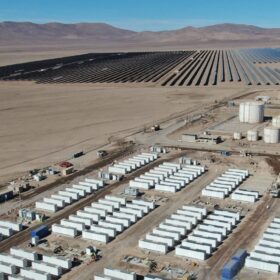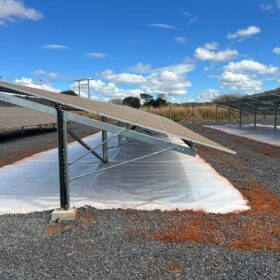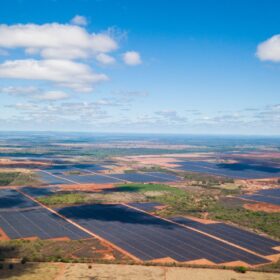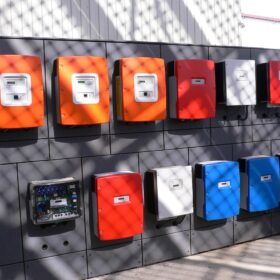Brazil installed 269 MWh of energy storage in 2024
Consultancy Greener has estimated the state of Pará offers the most potential for battery rollout because of its high energy tariff. A report issued by the consultant also highlighted the big savings agribusiness could make by using batteries instead of diesel.
Brazilian plastics manufacturer offers reflective membrane for bifacial PV plants
Azul Pack has developed a new reflective membrane to increase albedo and energy yield in photovoltaic plants with bifacial modules. In a fixed structure plant located in Minas Gerais, the technology reportedly resulted in a 7% increase in energy at the inverter output.
São Paulo Metro to use self-produced wind and solar energy
The long-term contract with CGN Brasil and Pontoon Energia will supply city trains with renewable energy generated at the Lagoa do Barro Complex in Piauí. The forecast is for annual savings of BRL 12 million ($2 million).
Latin America’s largest PV plant expands to 1.6 GW
Elera Renováveis has commissioned the third phase of the 1.6 GW Janaúba solar complex in Brazil. The facility, which went online this week, consists of 27 solar parks spread across 3,800 hectares.
Brazil’s largest microgrid goes online
Brazil’s largest microgrid has gone online at the State University of Campinas (Unicamp). The CampusGrid project combines a 565 kW solar system with a 1 MW high-capacity battery energy storage system (BESS).
Brazilian islands to have 85% solar and battery storage by 2027
Replacing diesel, the Noronha Verde project will be carried out by Neoenergia with an investment of BRL 300 million ($52.1 million).
Apartment battery systems attractive after São Paulo storm blackout
Solar-plus-storage systems are attracting homes and businesses to guarantee energy supply and avoid losses in emergencies. Brazilian solar trade body Absolar estimates battery prices have fallen around 90% over 15 years.
Brazil to require solar inverters with arc fault circuit interrupters from December
Brazil’s National Institute of Metrology, Quality and Technology (Inmetro) says it has introduced a requirement for inverters to have arc fault circuit interrupters, effective December 2024, to prevent fires and enhance PV system safety.
Brazilian manufacturer unveils 1 kg BIPV module
Eternit S.A., a Brazilian construction materials supplier, says it has developed a 50 W panel for building-integrated PV (BIPV) applications. The 1 kg module features monocrystalline passivated emitter and rear cell (PERC) tech.
Solar module prices rising in Brazil
Despite global overcapacity, several factors may contribute to a slight increase in solar panel prices in Brazil, with shipping costs and quotas for fiscal exemptions on imported PV modules playing a key role.










